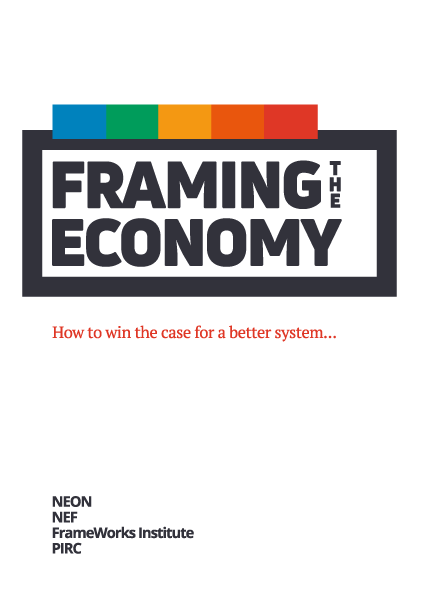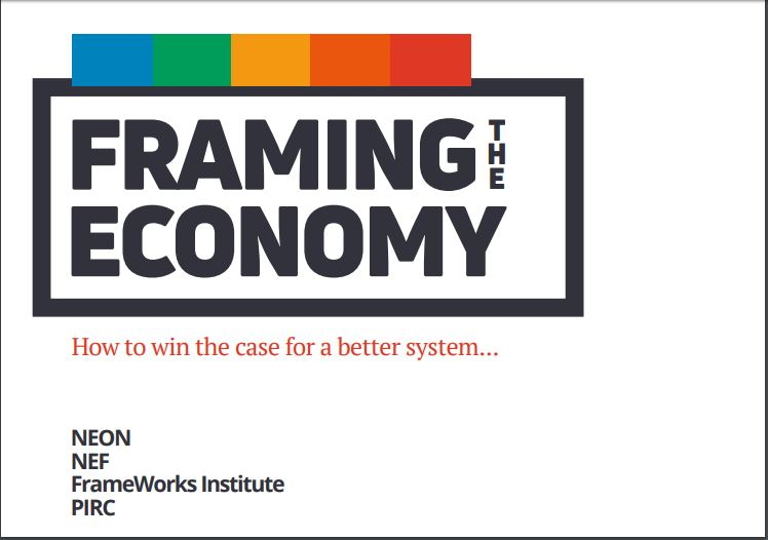 How do the UK public think and reason about the economy? What shapes and informs our idea of how the economy works, who it serves and how it could be changed? How can civil society construct new and compelling stories that shift thinking and call for a more equitable and democratic economy?Framing the Economy set out to answer these questions.
How do the UK public think and reason about the economy? What shapes and informs our idea of how the economy works, who it serves and how it could be changed? How can civil society construct new and compelling stories that shift thinking and call for a more equitable and democratic economy?Framing the Economy set out to answer these questions.
Framing the Economy is a collaboration between PIRC, the New Economics Foundation, the New Economy Organisers Network and the FrameWorks Institute. Over two years, we have worked together to find out how people across the UK think about the economy – and how civil society campaigners can use this understanding to better communicate.
The economy is a collection of a human systems, invented to help us harness resources to provide for human needs, inside or outside the marketplace. Through different stages of research and consultation, we have found that the way people think about these systems is deeply affected by which stories of the economy are told, how often, and by whom. For example, metaphorical language that likens the economy to a weather system (e.g. ‘waves’, ‘tides’, ‘plunge’, ‘storms’) suggests that the economy is a self-governing and somewhat mysterious force best left to its own devices – a way of thinking that can justify a laissez faire approach to governance.
During the latter stages of our research, we focused on creating and testing new stories that shift thinking and build support for a new economy. We found that metaphorical language implying human intervention and design (e.g. ‘reprogramme’, ‘building economic tracks’) can overcome people’s fatalism and motivate support for progressive policies.
 Our Framing the Economy report outlines how the British public think about the economy and offers two new story strategies to bring about change.
Our Framing the Economy report outlines how the British public think about the economy and offers two new story strategies to bring about change.
We are continuing to carry out research and training to help civil society groups organise and frame more effectively: if you want to find out more, get in touch!


